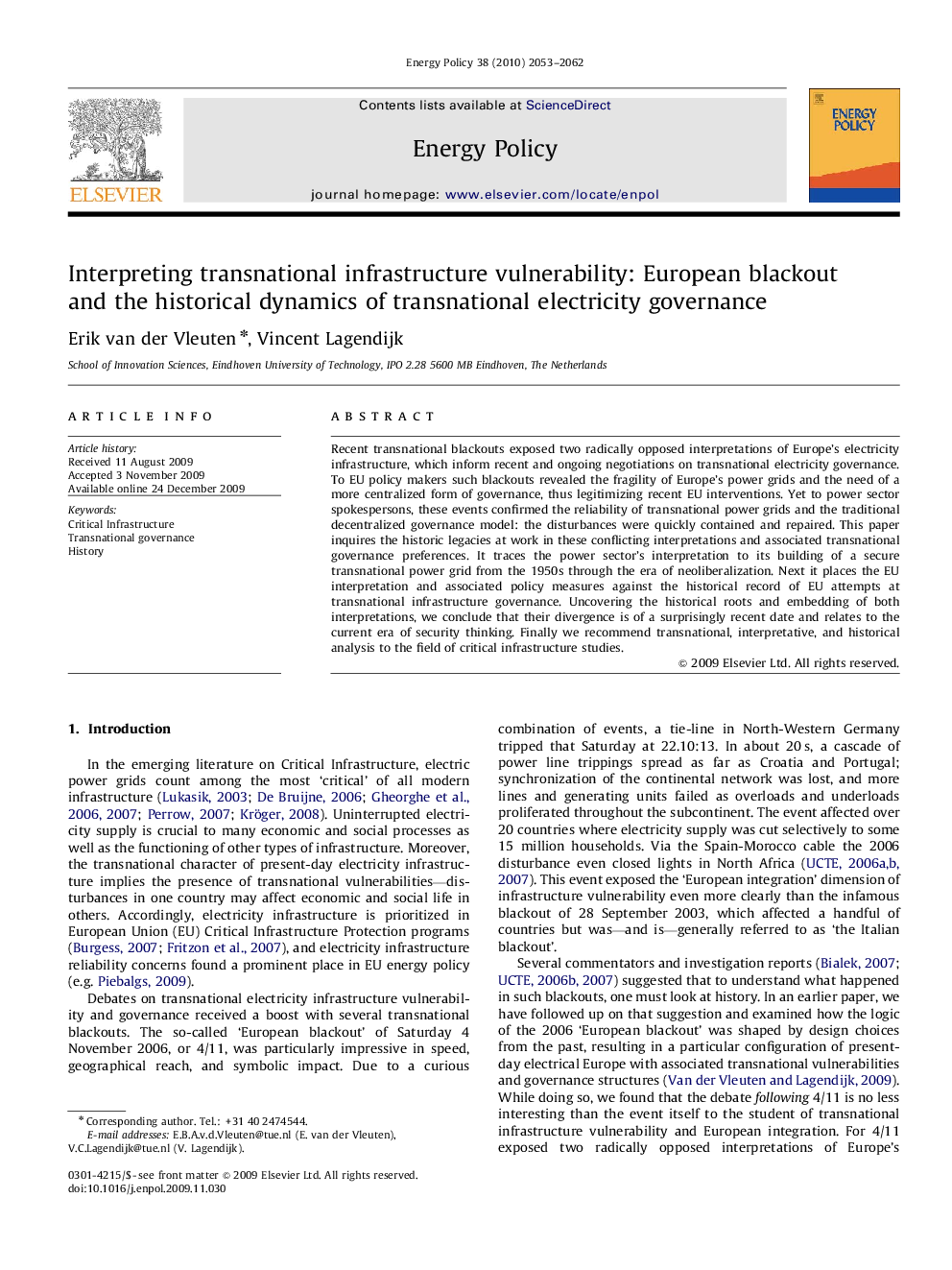| Article ID | Journal | Published Year | Pages | File Type |
|---|---|---|---|---|
| 993685 | Energy Policy | 2010 | 10 Pages |
Recent transnational blackouts exposed two radically opposed interpretations of Europe’s electricity infrastructure, which inform recent and ongoing negotiations on transnational electricity governance. To EU policy makers such blackouts revealed the fragility of Europe’s power grids and the need of a more centralized form of governance, thus legitimizing recent EU interventions. Yet to power sector spokespersons, these events confirmed the reliability of transnational power grids and the traditional decentralized governance model: the disturbances were quickly contained and repaired. This paper inquires the historic legacies at work in these conflicting interpretations and associated transnational governance preferences. It traces the power sector’s interpretation to its building of a secure transnational power grid from the 1950s through the era of neoliberalization. Next it places the EU interpretation and associated policy measures against the historical record of EU attempts at transnational infrastructure governance. Uncovering the historical roots and embedding of both interpretations, we conclude that their divergence is of a surprisingly recent date and relates to the current era of security thinking. Finally we recommend transnational, interpretative, and historical analysis to the field of critical infrastructure studies.
